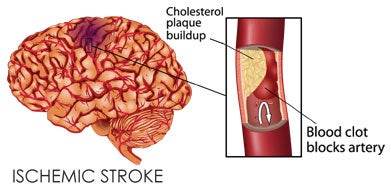Thrombolytics & t-PA

Thrombolytics: Alteplase
Intra-arterial mechanical thrombectomy is a minimally invasive procedure that, when performed in conjunction with Alteplase administration, can remove clots and stop a stroke in its tracks. We can perform this innovative and life-saving procedure at both WakeMed Raleigh Campus and Cary Hospital.
During a mechanical thrombectomy, a neurosurgeon uses an innovative, catheter-based technology to capture the clot and pull it out of the artery, which immediately restores blood flow to the brain. This procedure is enhanced by biplane technology, an advanced imaging system that helps the physician guide instruments through the patient’s artery to the clot.
The procedure is used in conjunction with Alteplase administration to maximize patient outcomes. This can mean minimizing or completely eliminating the long-term side effects of stroke, such as speech, dexterity and mobility issues.
The Need for Speed
It's important to call 911 immediately when symptoms of stroke (slurred speech, confusion, weakness on one side of the body, vision loss) strike. Studies reveal that Alteplase is most effective when it is administered within three hours of the onset of symptoms.
Patients who receive Alteplase are 30 percent more likely to have minimal or no disability at 90 days after a stroke. In terms of stroke recovery after three months, the administration of Alteplase at one hour after stroke symptom onset is 3.5 times more effective than administration at three hours after symptom onset.
2023 Goals - Door to First Device and Door to Thrombolytic
Stroke Patient Data - Volumes & Treatment
